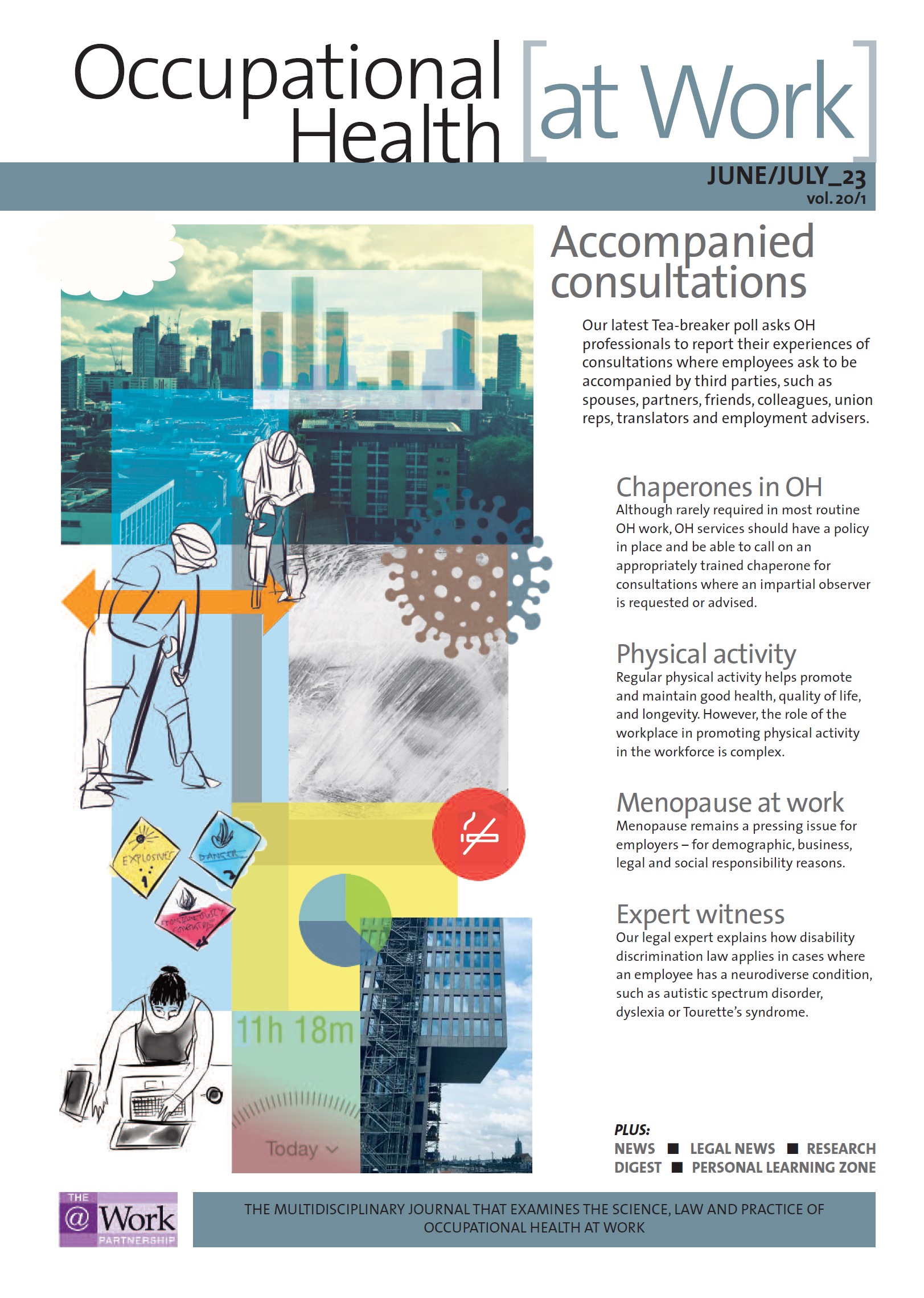June/July 2023 (vol. 20/1)
ContentsFeaturesNewsLegal
NewsResearch DigestResearch PlusCPD
 Expert Witness: Neurodiversity at work: the role of OH
Expert Witness: Neurodiversity at work: the role of OH
An exploration of the relevant law
Summary:
Diana Kloss explains how disability discrimination law applies in cases where an employee has a neurodiverse condition, such as autistic spectrum disorder, dyslexia or Tourette’s syndrome.
The autistic spectrum disorder (ASD) encompasses several different conditions. According to the NHS website1 these are not illnesses or diseases but mean that autistic people’s brains work in a different way to those of neurotypical people. They are born with these conditions, and they last for life. Asperger syndrome is sometimes used to describe ‘high functioning’ autism. People with autism often have other conditions, such as attention deficit hyperactivity disorder, dyslexia, dyspraxia, or Tourette’s syndrome. Some have average or above-average intelligence; in contrast, some have a learning disability and may need daily care. The Society of Occupational Medicine has published a helpful guide: Evaluating and supporting neurodifferences at work2
Are people with autism disabled?
In order to be classified as disabled within the definition of disability in the Equality Act 2010 (EqA)…
Diana Kloss is a barrister, former part-time employment judge, Acas arbitrator and author.
Author: Kloss D
Occupational Health at Work June/July 2023 (vol. 20/1) pp34-37



